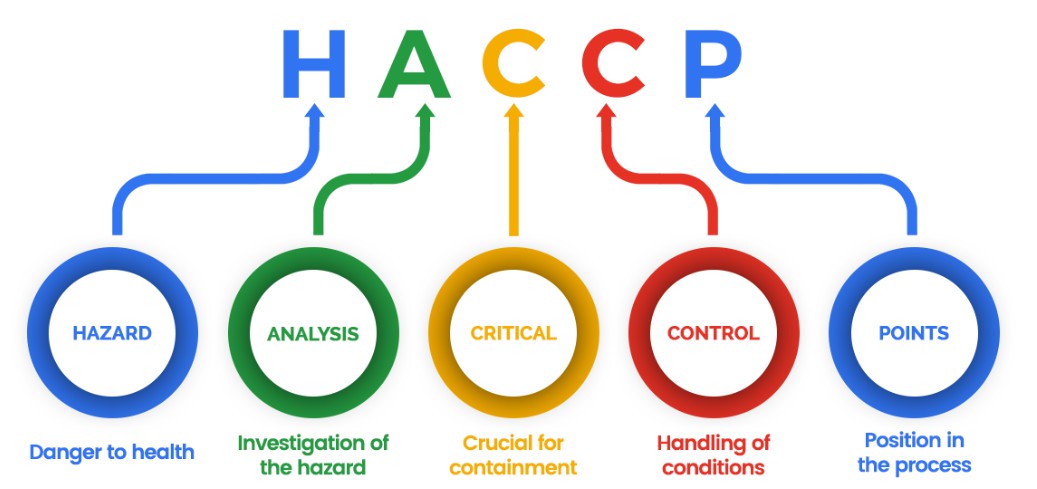HACCP Certification: Essential Pathway to Food Safety Compliance Across Ireland's Food Sector
In today's competitive food industry, maintaining food safety compliance is not just a legal obligation, but a critical aspect of protecting your business's reputation. Achieving HACCP Certification through structured HACCP Training is paramount for food establishments in Dublin, Cork, Galway, Limerick, Waterford, and Belfast. This blog post explores the importance of HACCP training for food safety compliance, and how it can significantly reduce contamination risks, improve food handling standards, and enhance public health protection.
What is HACCP?
HACCP stands for Hazard Analysis and Critical Control Points. It is a systematic approach to identifying and controlling food safety hazards at every stage of the food supply chain, from production to consumption. HACCP is an internationally recognized standard that provides essential guidelines for food safety management, ensuring that businesses can effectively mitigate risks associated with food handling.
The Importance of HACCP Training
- Compliance With Irish and EU Food Safety Regulations: Obtaining HACCP certification ensures your business aligns with the latest food safety laws and regulations in Ireland and throughout the EU.
- Risk Assessment and Hazard Control: HACCP training equips staff with the knowledge to identify potential hazards and implement control measures effectively.
- Enhanced Public Health Protection: By adhering to HACCP guidelines, food businesses can contribute to reducing foodborne illnesses and ensure the safety of their customers.
Key HACCP Principles
HACCP is built upon seven core principles that form the backbone of effective food safety management:
- Conduct a Hazard Analysis: Identify potential hazards (biological, chemical, physical) that may arise in the food production process.
- Determine the Critical Control Points (CCPs): Identify points in the process where control can be applied to eliminate the hazards.
- Establish Critical Limits: Set maximum and/or minimum limits to control the hazards at each CCP.
- Establish Monitoring Procedures: Create monitoring systems to ensure that CCPs are under control.
- Establish Corrective Actions: Determine actions to be taken when monitoring indicates a deviation from established limits.
- Establish Verification Procedures: Verify that the HACCP system is working effectively.
- Record-Keeping and Documentation: Maintain detailed records to demonstrate compliance and effectiveness of the HACCP plans.
Benefits of HACCP Training
Implementing robust HACCP training programs offers numerous benefits for food businesses:
- Improved Food Handling Standards: Training staff on HACCP principles ensures that food safety practices are consistently followed, leading to higher food handling standards.
- Reduction of Contamination Risks: Proper training helps identify and eliminate potential contamination risks, resulting in a safer food environment.
- Enhanced Consumer Trust: HACCP certification boosts consumer confidence in your food products, establishing a trustworthy brand.
Steps to Achieve HACCP Certification
To obtain HACCP certification, follow these essential steps:
- Enroll in Structured HACCP Training Courses: Choose accredited training programs tailored to your industry.
- Conduct a Comprehensive Hazard Analysis: Assess your unique food production processes to identify potential hazards.
- Develop a HACCP Plan: Create a detailed HACCP plan based on the principles outlined above.
- Implement the HACCP System: Train staff and implement the necessary control measures.
- Undergo an Independent HACCP Audit: Have a third-party auditor review and verify your HACCP system.
- Maintain Continuous Improvement: Regularly review and update your HACCP plan to adapt to changes in your processes.
Online HACCP Training: A Flexible Solution
In today's fast-paced environment, online HACCP training is becoming increasingly popular and convenient for food industry professionals. With options for HACCP Level 1 & 2 courses, food handlers can easily fulfill their training requirements at their own pace, allowing for greater flexibility without disrupting business operations.
Common HACCP Mistakes to Avoid
Understanding and implementing HACCP can be challenging, and mistakes can undermine its effectiveness. Here are some common pitfalls:
- Inadequate hazard analysis leading to insufficient control measures.
- Poor documentation and record-keeping which complicates compliance evidence.
- Neglecting the importance of staff training and continued education.
Boosting Business Reputation with HACCP Compliance
By investing in HACCP training and achieving certification, food businesses not only ensure compliance but also enhance their reputation within the industry. Customers are increasingly concerned about food safety, and demonstrating a commitment to high standards can establish your brand as a leader in food safety and quality.
Conclusion & Call to Action
In conclusion, implementing HACCP training is crucial for any food-related business operating in Ireland. If you're ready to enhance your food safety standards, mitigate contamination risks, and ensure compliance with Irish and EU regulations, consider enrolling in a reputable HACCP Training Course today. For any inquiries, feel free to reach us at [email protected].



 349,500 Offered Certificates
349,500 Offered Certificates
 24/7 Online Training
24/7 Online Training
 Money Back Guarantee
Money Back Guarantee
 Fully Accredited Courses
Fully Accredited Courses
